Hsu Wei-hui’s (徐薇蕙) sculptures and installations invite the viewer to question, to challenge and to re-examine gender roles and how ideals of beauty operate to create standards of female perfection. In The Counteroffensives (粉紅逆襲), a must-see exhibition currently on view at Liang Gallery (尊彩藝術中心) until Feb. 28, Hsu ponders the contradictions and conflicts between notions of imagined beauty and the impossibility of living up to an unrealistic expectation that, for many, is all too real. Drawing on her considerable artistic talent, Hsu’s feminine sculptures — dresses, flower petals and kitchen utensils — all made from facial masks, symbolize the human body and the changes it undergoes over time. Guerilla Girls, several installations some of which contains thousands of plastic toy soldiers dressed in patterned dresses and painted hot pink, inverts our stereotypical assumptions about the toys boys play with, and serves as an entertaining and thought-provoking statement about female empowerment.
■ Liang Gallery (尊彩藝術中心), 366 Ruiguang Rd, Taipei City (台北市瑞光路366號), tel: (02) 2797-1100. Open Tuesdays to Sundays from 10am to 6pm
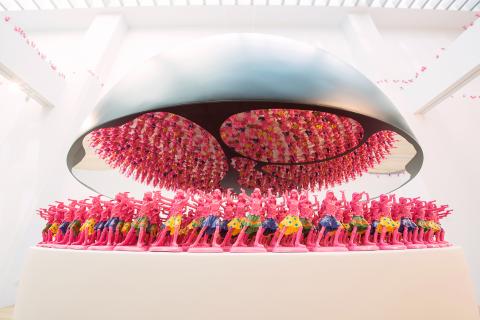
Photo courtesy of Liang gallery
■ Until Feb. 28
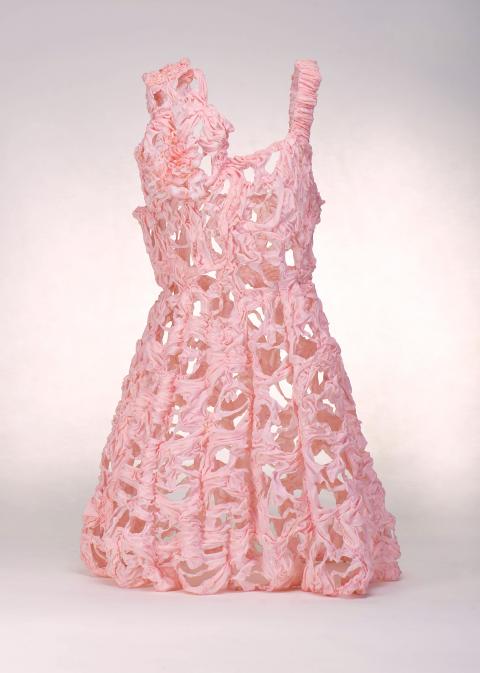
Photo courtesy of Liang gallery
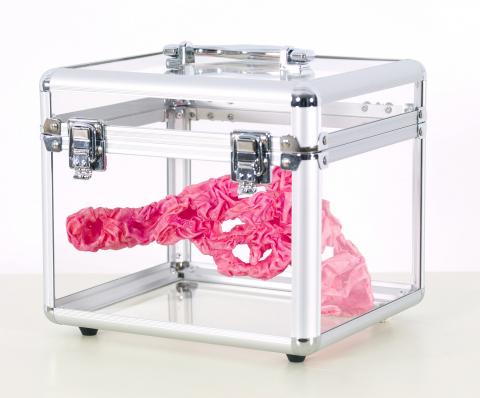
Photo courtesy of Liang gallery
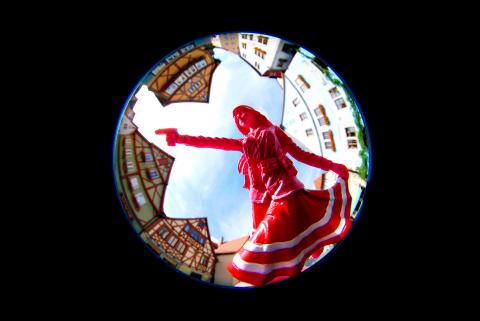
Photo courtesy of Liang gallery
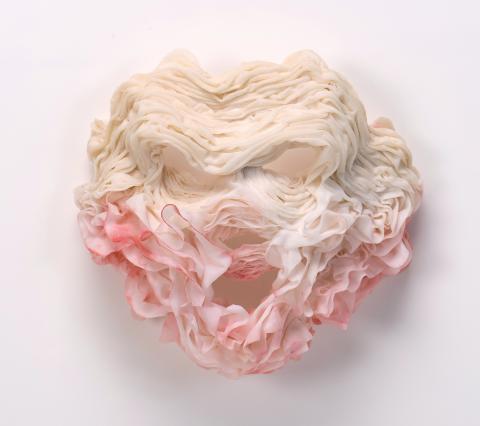
Photo courtesy of Liang gallery
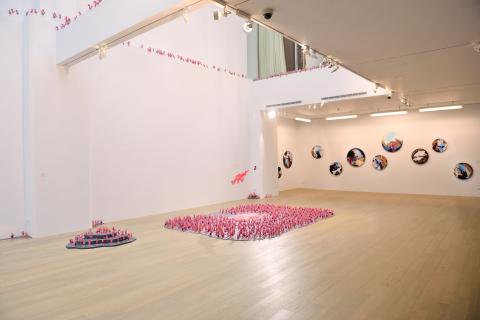
Photo courtesy of Liang gallery
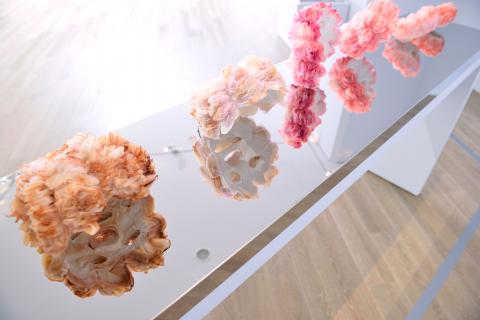
Photo courtesy of Liang gallery

Photo courtesy of Liang gallery

As Taiwan’s second most populous city, Taichung looms large in the electoral map. Taiwanese political commentators describe it — along with neighboring Changhua County — as Taiwan’s “swing states” (搖擺州), which is a curious direct borrowing from American election terminology. In the early post-Martial Law era, Taichung was referred to as a “desert of democracy” because while the Democratic Progressive Party (DPP) was winning elections in the north and south, Taichung remained staunchly loyal to the Chinese Nationalist Party (KMT). That changed over time, but in both Changhua and Taichung, the DPP still suffers from a “one-term curse,” with the

William Liu (劉家君) moved to Kaohsiung from Nantou to live with his boyfriend Reg Hong (洪嘉佑). “In Nantou, people do not support gay rights at all and never even talk about it. Living here made me optimistic and made me realize how much I can express myself,” Liu tells the Taipei Times. Hong and his friend Cony Hsieh (謝昀希) are both active in several LGBT groups and organizations in Kaohsiung. They were among the people behind the city’s 16th Pride event in November last year, which gathered over 35,000 people. Along with others, they clearly see Kaohsiung as the nexus of LGBT rights.

Jan. 26 to Feb. 1 Nearly 90 years after it was last recorded, the Basay language was taught in a classroom for the first time in September last year. Over the following three months, students learned its sounds along with the customs and folktales of the Ketagalan people, who once spoke it across northern Taiwan. Although each Ketagalan settlement had its own language, Basay functioned as a common trade language. By the late 19th century, it had largely fallen out of daily use as speakers shifted to Hoklo (commonly known as Taiwanese), surviving only in fragments remembered by the elderly. In

Dissident artist Ai Weiwei’s (艾未未) famous return to the People’s Republic of China (PRC) has been overshadowed by the astonishing news of the latest arrests of senior military figures for “corruption,” but it is an interesting piece of news in its own right, though more for what Ai does not understand than for what he does. Ai simply lacks the reflective understanding that the loneliness and isolation he imagines are “European” are simply the joys of life as an expat. That goes both ways: “I love Taiwan!” say many still wet-behind-the-ears expats here, not realizing what they love is being an